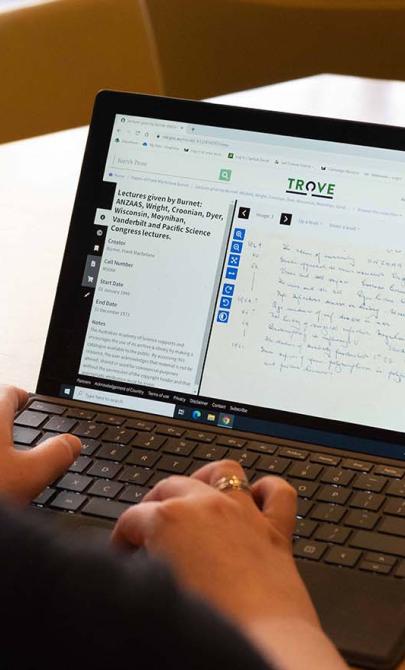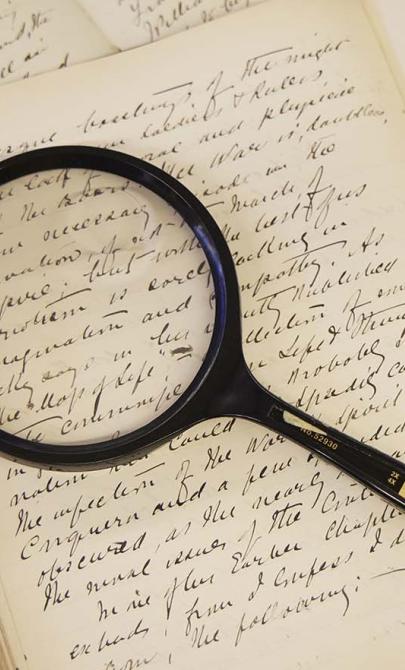Indigenous responses to Cook and his voyage
About this module
Using an inquiry-based approach, this module develops students' skills as historians through engaging historical sources. Featuring sources from the National Library's collections, the resource caters for flexible approaches to suit diverse classroom contexts and learning styles.
Copyright for teachers
You can download all collection materials in this resource for education purposes. For more information, go to copyright for teachers.
Guugu Yimithirr Traditional Owner and Bama Historian Alberta Hornsby speaks about her community of Endeavour River and their connection with James Cook.
Topics in this module
This module covers 5 key topics.
Each topic includes an introduction to key concepts, links to key resources in our collection and a series of learning activities that cater for a variety of classroom contexts and learning styles.
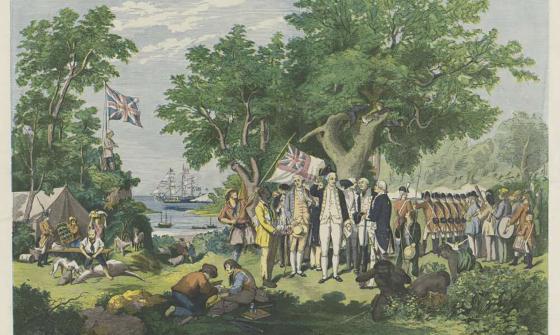
Samuel Calvert and JA Gilfillan, Captain Cook taking possession of the Australian continent on behalf of the British crown, AD 1770, under the name of New South Wales, 1865, nla.gov.au/nla.obj-135699884
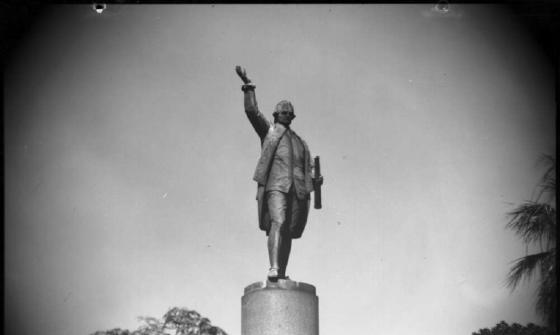
Frank Hurley and Thomas Woolner, Captain Cook's Statue, Hyde Park, Sydney, 1, 1910, nla.gov.au/nla.obj-160162538
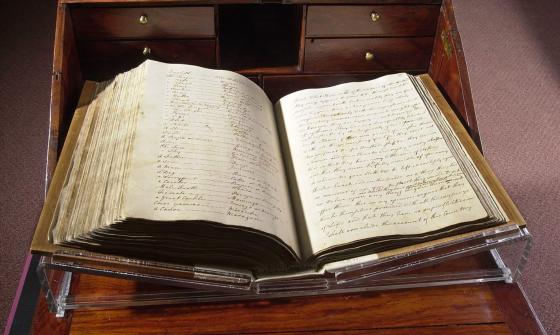
James Cook, John Hutchinson, Samuel Wallis and Henry William Ferdinand Bolckow, Journal of H.M.S. Endeavour, 1768-1771, nla.gov.au/nla.obj-228958440
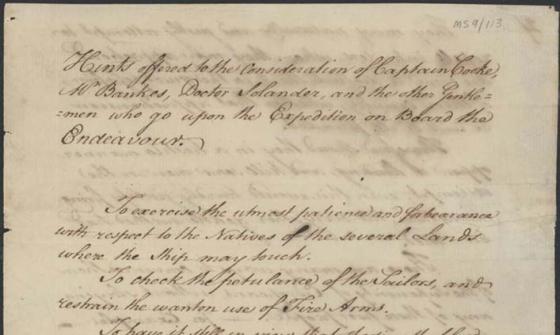
Joseph Banks, Papers of Sir Joseph Banks, 1745-1923 (bulk 1745-1820), nla.gov.au/nla.obj-223065342
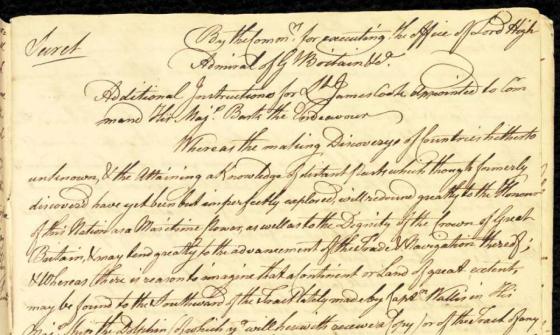
James Cook and Great Britain Admiralty, Cook's voyage 1768-71, 1768, nla.gov.au/nla.obj-229102048
Glossary
This glossary includes words highlighted in bold throughout the module. Unless otherwise indicated, definitions and glossary entries come from The Maquarie Dictionary.
Definitions have been selected for best fit to context, some entries have multiple meanings in different applications.
Amity
friendship; harmony; good understanding, especially between nations.
Beach
(verb) Nautical to run or haul up (a ship or boat) on the beach.
Bêche-de-mer
also called trepang. The boiled, dried, and smoked flesh of sea cucumbers used to make soups.
Information taken from Encyclopeadia Britannica
Cataclysm
any violent upheaval, especially one of a social or political nature.
Compartmentalisation
to divide into compartments or sections.
Exhorted
to urge, advise, or caution earnestly; admonish urgently.
Forbearance
to refrain from; desist from; cease
Fostering
to promote the growth or development of; further; encourage
Foundering
to fill with water and sink, as a ship
Gubba
Colloquial: from Gubbament. Which is itself a slang term for government. In some cases, the only white people some Indigenous communities met were from or representing the Government. Hence, white people were associated with the government. Gubba is an evolution of Government Person/Man/Woman > Gubbament person > Gubba.
In lingo
Colloquial: In language, Aboriginal English a traditional Australian Aboriginal language, as distinguished from Standard Australian English, Aboriginal English, or a creole.
Lampooning
a malicious satire upon a person, institution, government, etc., in either prose or verse.
Mantle
something that covers, envelops, or conceal
Omnipotent
almighty, or infinite in power, as God or a deity.
Peer
a nobleman.
Petulance
showing sudden, impatient irritation, especially over some trifling annoyance
Prosaic
commonplace or dull; matter-of-fact or unimaginative.
Residual
remaining; left over
Scapegoat
someone who is made to bear the blame for others or to suffer in their place
Trochus
a gastropod mollusc of the family Trochidae, having a conical shell
Wanton
- done, shown, used, etc., maliciously or unjustifiably
- deliberate and uncalled for: why ruin your career in this wanton way?
- reckless or disregardful of right, justice, humanity, etc., as persons.
Zealously
Full of, characterised by, or due to zeal; ardently active, devoted, or diligent
Curriculum links
This resource is aligned with the Australian Curriculum: Modern History for Senior Secondary students.
- The nature of the relationship of Indigenous peoples with their land and their response to, perceptions of, and feelings about the arrival of the colonisers (ACHMH070)
- The basis on which the colonists claimed sovereignty and imposed control, including conquest, treaty and the doctrine of ‘terra nullius’; and the consequences for the legal status and land rights of Indigenous peoples (ACHMH071)
- The reasons for colonisation and how the country became colonised, including the different situations of the chosen countries, and the nature of those differences (ACHMH077)
